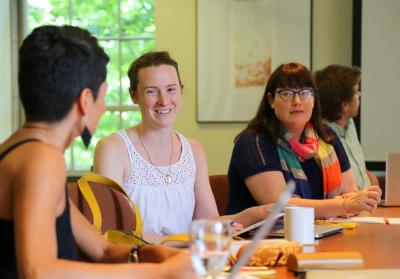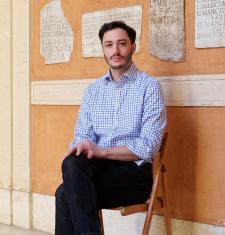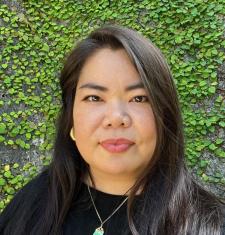Digital Humanities Summer Fellowships

The Simpson Center offers annual summer fellowships for faculty and graduate students to pursue research projects that use digital technologies in innovative and intensive ways and/or explore the historical, social, aesthetic, and cross-cultural implications of digital cultures. The program has three primary goals:
- To animate knowledge—using rich media, dynamic databases, and visualization tools
- To circulate knowledge—among diverse publics
- To understand digital culture—historically, theoretically, aesthetically, and generatively
The Simpson Center gratefully acknowledges the support of a National Endowment for the Humanities Challenge Grant and the Andrew W. Mellon Foundation as well as many donors to the endowment which is underwriting these fellowships.
2025 - 2026 Digital Humanities Summer Fellows








2014 - 2015 Digital Humanities Summer Fellow

P. Joshua Griffin (he/him/his)
Archiving the Future: Politics and Possibilities for Climate-Induced Relocation in Northwest Alaska
This dissertation is a multi-sited ethnography of climate change that considers experience, affect, and ethics in an age of planetary uncertainty. The Summer Digital Humanities Commons Fellowship will support this project's continued collaboration with ReLocate Kivalina (ReLocate), a multi-disciplinary research collective working with the Native Village of Kivalina and the City of Kivalina to support a culturally specific climate-induced village relocation. Through two years of pilot fieldwork and community consultation, several themes have emerged as critical to transforming the relocation process. First, there exists a politics of knowledge and representation that consistently works against the community’s efforts to be heard and understood by governmental agencies. Secondly, the project's partners in Kivalina have identified the need to situate the contemporary relocation process in the context of history, culture, and place. With these objectives in mind, this proposal will support the project's work on an interactive, multimedia, open-data archive of Kivalina's recent relocation history, and a Scalar project rendering visible "A History of Dwelling-Site Selection in the Kivalina Region" over the last 100 years.